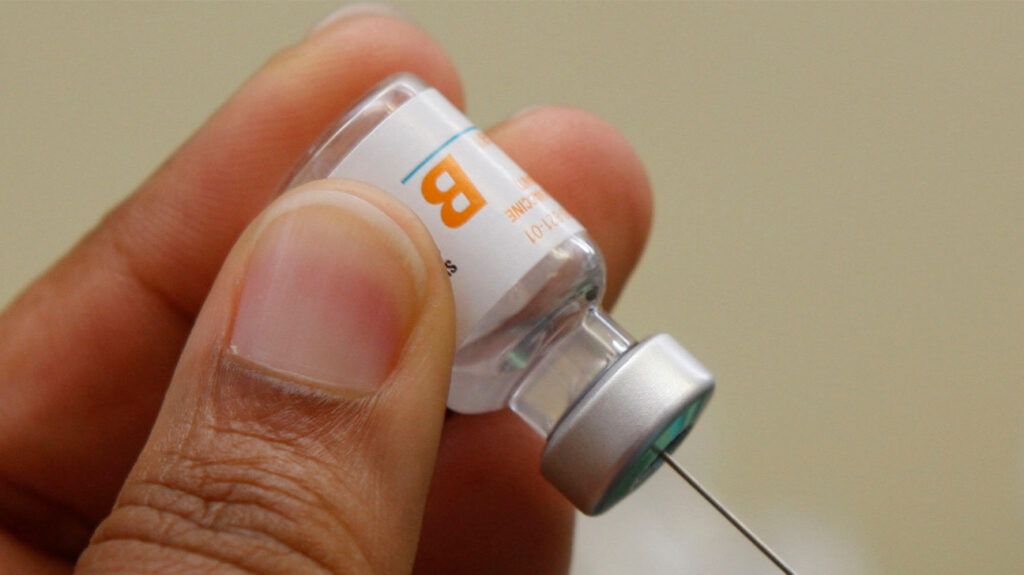Hepatitis B prevention methods involve medical screening, vaccination, and following safe practices. Good hygiene practices such as washing hands and using condoms with sexual partners are essential to preventing transmission of the hepatitis B virus.
Hepatitis B is a potentially life threatening liver infection affecting millions of people worldwide. The hepatitis B virus (HBV) causes it. The virus can spread through blood, semen, and other bodily fluids.
Preventing hepatitis B is crucial as it has the potential to cause liver cancer and chronic liver disease. Understanding and following prevention strategies, such as vaccination, can significantly reduce the risk of hepatitis B becoming fatal.
In this article, we examine whether hepatitis B is preventable, discuss some prevention measures, and answer some frequently asked questions.

Although about
Prevention is possible through a combination of the following:
- vaccination
- early screening
- other measures, such as adopting safe practices
Vaccination is the
The protection it offers is long lasting, often providing immunity for at least 20 years or even longer. In some cases, a doctor may recommend booster shots, particularly for high risk individuals or those with weakened immune systems.
The vaccine schedule
Doctors usually administer the hepatitis B vaccine in a
For adults, the vaccine schedule may vary slightly, but completing the full series is essential for long-lasting protection.
Who needs vaccination?
The
- newborns and infants
- children and teenagers younger than 19 years old who are unvaccinated
- adults between ages 19 and 59 years
- adults ages 60 years and over, especially if they have risk factors for hepatitis B infection
Some people may be more at risk of hepatitis B and should consider vaccination, including:
- people using injectable drugs
- individuals with HIV
healthcare workers - men who have sex with men
- people with multiple sexual partners
- people who travel to countries with
intermediate or high levels of hepatitis B - individuals with end stage kidney failure
- infants born to mothers who have hepatitis B
- individuals born in countries with a high prevalence of hepatitis B
This list is not exhaustive, other risk factors can potentially increase a person’s risk of developing hepatitis B.
Learn more about risk factors for hepatitis B.
Screening plays a critical role, especially for individuals with a high risk of developing hepatitis B infection. It usually involves a blood test, made up of three parts. These are:
- Hepatitis B surface antigen test: This test helps identify whether a person currently has the infection.
- Hepatitis B core antibody test: This test helps check whether a person has ever had the infection.
- Hepatitis B surface antibody test: This test helps check whether a person has cleared the virus after infection or whether they have been vaccinated and is now immune.
Identifying HBV early via screening tests can help prevent the spread of the virus and initiate timely treatment.
While vaccination is
Safe practices
The following actions can help prevent or reduce the risk of HBV transmission:
- Practice safe sex: Using condoms can lower the risk of HBV transmission during sexual activity. Limiting the number of sexual partners also reduces exposure risk.
- Avoid sharing needles: People using intravenous drugs should never share needles or other injection equipment. Programs providing clean needles and syringes can help minimize this risk.
- Blood safety: Covering cuts and skin lesions can help prevent the spread of infectious secretions or blood. Medical professionals will ensure that any blood or blood products a person receives are screened for hepatitis B.
- Medical disclosure: Individuals who test positive for hepatitis B should notify their household, sexual contacts, and healthcare professionals of their status.
Hygiene measures
Proper hygiene measures can also reduce the risk of HBV transmission. These can include:
- Personal items: Avoid sharing personal items that might contain blood, such as razors, toothbrushes, or nail clippers.
- Infection control: In healthcare settings, healthcare workers should follow standard precautions, including the use of gloves, proper sterilization of instruments, and safe disposal of needles and other sharp items.
- Wash hands: After coming into contact with blood, body fluids, or potentially contaminated surfaces, wash hands thoroughly with soap and water.
- Use bleach: Clean any blood spills or dried blood using diluted bleach with gloved hands. Mix one part bleach and nine parts water to make the bleach solution.
People who test positive for hepatitis B should avoid donating blood, plasma, tissue, or semen.
Parent-to-child transmission
Pregnant people can transmit hepatitis B to their unborn baby. Prevention can include taking antiviral medications in addition to the hepatitis B vaccine.
Screening for HBV in pregnant people is essential. If they test positive for the virus, a doctor
What is the best protection against hepatitis B?
The
How can we prevent hepatitis B?
People can prevent hepatitis B infection by adhering to vaccine recommendations. Additionally, avoiding sharing personal items that might come into contact with blood, such as razors or toothbrushes, is a helpful prevention method.
Certain practices and hygiene measures such as safer sex practices, blood safety, and washing hands can also help prevent the transmission of HBV.
How to protect a partner from hepatitis B?
By communicating openly about HBV status and prevention measures, individuals can protect a partner from hepatitis B. Precautions include:
- making sure the partner is vaccinated against hepatitis B
- practicing safer sex by using condoms consistently and correctly during sexual activity
- avoiding sharing personal items that might have blood containing HBV
Preventing hepatitis B is possible through a comprehensive approach that includes vaccination, safe practices, and early screening.
Vaccination is the best way to protect a person from hepatitis B infection. It can provide long-lasting immunity. Complementing vaccination with safer sex practices, avoiding needle sharing, and maintaining good hygiene further reduce the risk of transmission.
By adopting these measures, individuals can protect themselves and their loved ones from the potentially severe consequences of hepatitis B.
